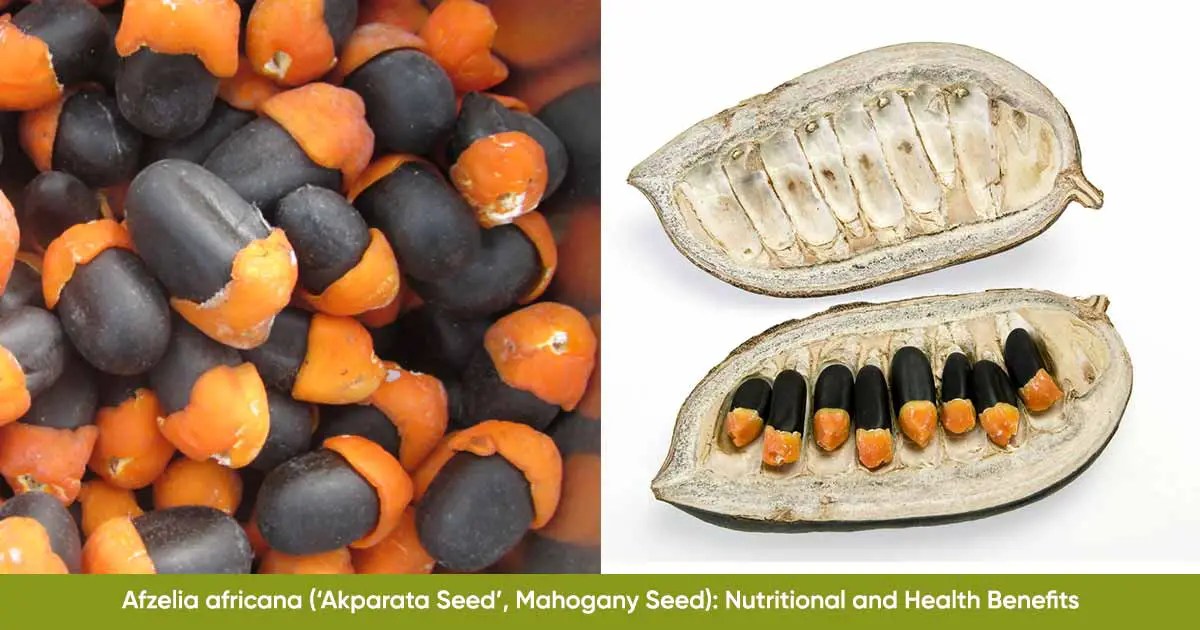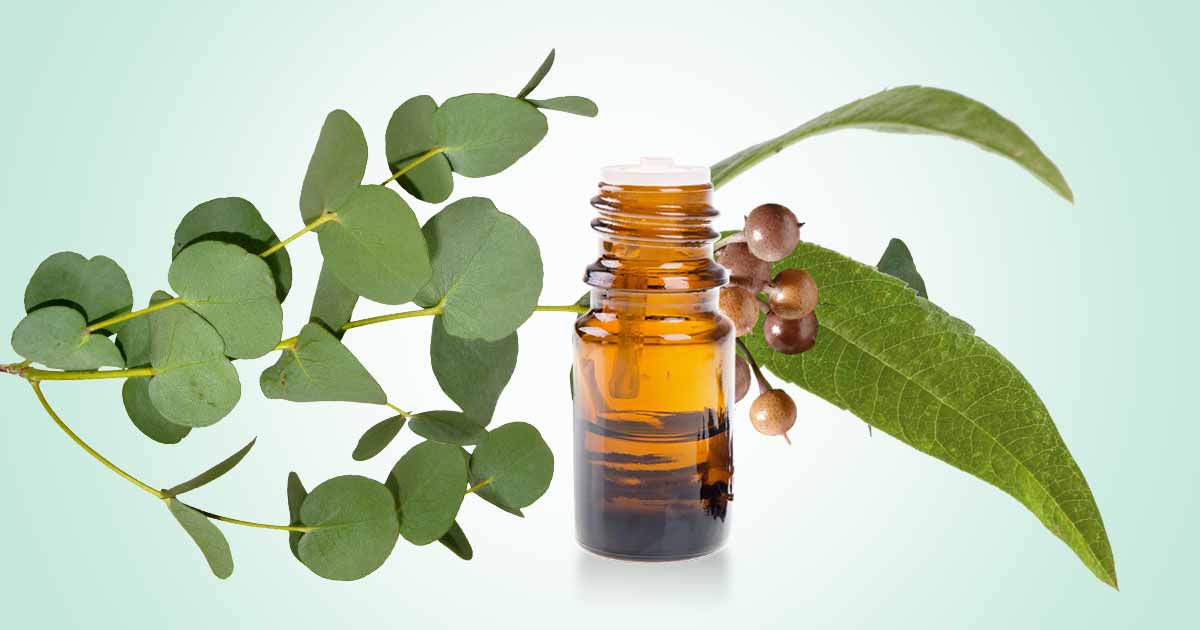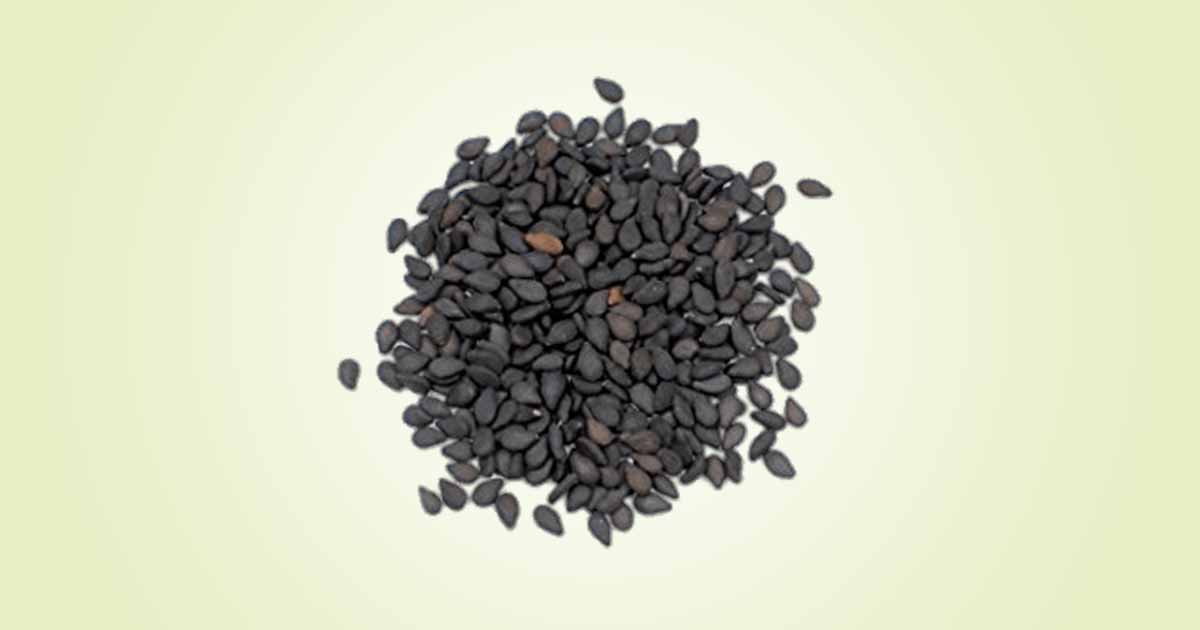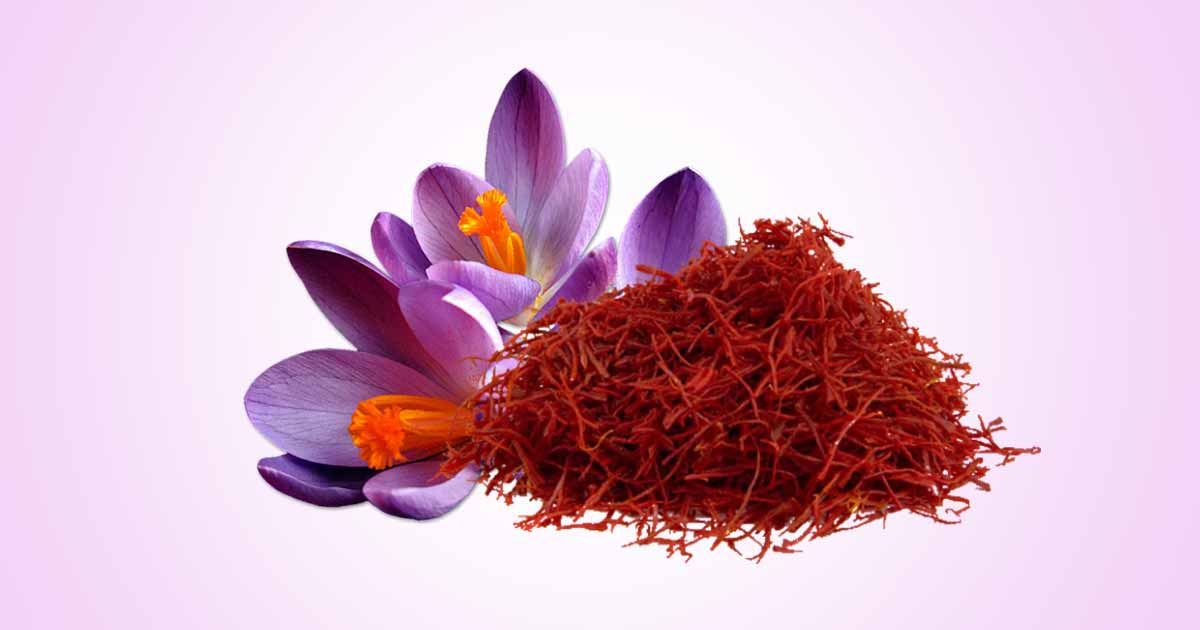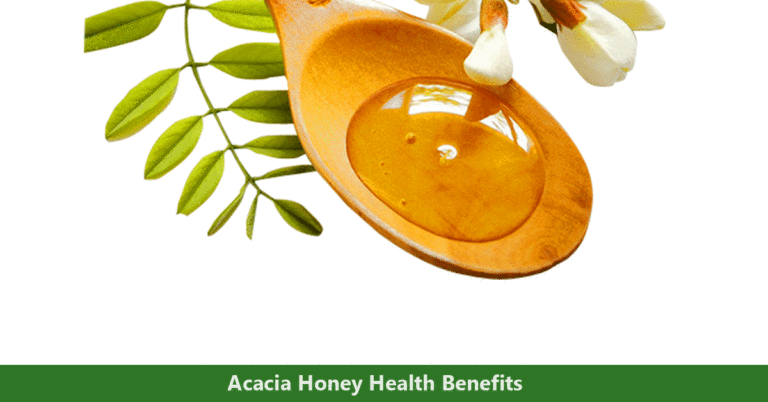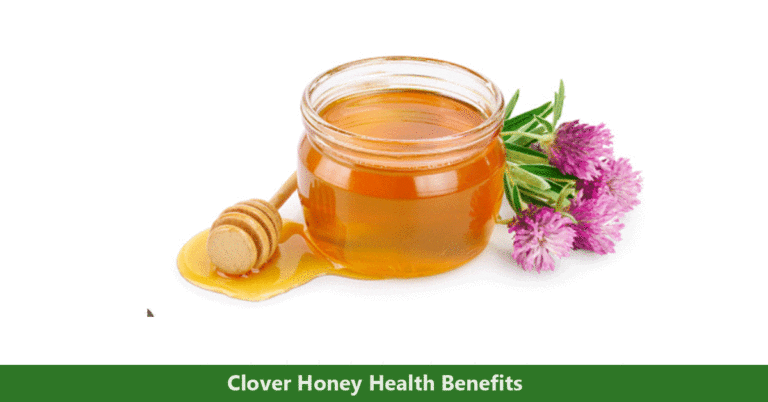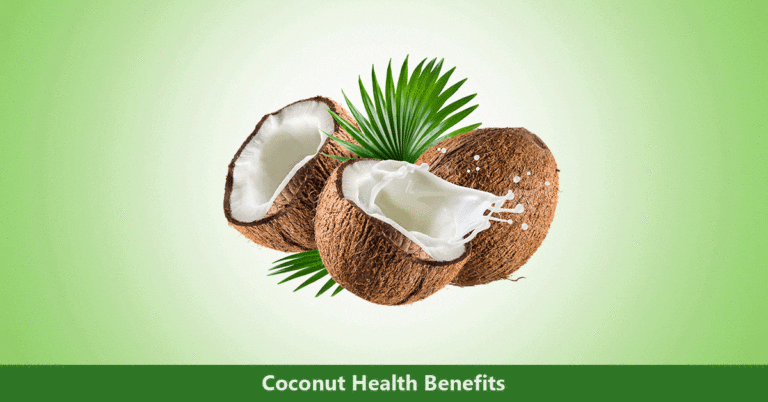African Mahogany seeds are called Akparata seed in Igbo language, Apa in Yoruba, Kawo in Hausa, Akpari, Akpasi in Edo part of Nigeria. The plant which grows well in the semi-dry forest belongs to the Leguminosae family. Other common names include African oak, African mahogany, Apa, pod mahogany, counter wood. It belongs to the Leguminosae and subfamily, Caesalpinaceae.
The tree of Afzelia africana can grow up to 20 m height, and has a spreading crown. The leaves are glabrous with up to 17 pair of leaflets, elliptic with an obtuse tip.
Afzelia africana has a dark brown, oblong, flattened pod with two hard woody valves. The hard woody valves containing approximately 8 black ellipsoid seeds with an orange aril. The pods open exposively when they are ripe to expose the seeds. The pods fall after some time with some seeds attached inside it. It is better to harvest pods when the color changes from green to brown. They are kept to dry and the seed collected when the pods open.
Mahogany seed, or Akparata powder, is a famous thickening agent, just as melon and Irvingia gabonensis seeds. It is used in soups such as oha leaf, ugu leaf, uziza, nsala soups in Eastern part of Nigeria. It adds flavor and aroma to food. To use the mahogany seed, the outer shell or husk is removed, and the seed processed.
Afzelia africana is used traditionally to treat pain, lumbago, hernia, fever, rheumatism, malaria, inflammation and microbial infection. The decoction of the stem bark is used in treating malaria and rheumatism. The leaf decoction is combined with Syzygium guineensis leaves and Xylopia fruit, to treat edema. The ash from the bark is mixed with shea butter to produce soaps used to treat lumbago. Infusion of the bark is used to treat paralysis, and a decoction for managing constipation.
Nutritional Composition of Afzelia africana (Mahogany Seed)
Though African mahogany seed contains protein and carbohydrates, it may not be biologically active due to the presence of antimetabolic substances and deficiency of sulphur-containing amino acids (Adebona et al., 1988).
Afzelia africana seed flour contains 4.38% of moisture, 15.02% crude proteins, 41.17% carbohydrates, 30.20% crude fat, 3.91% fiber, and 5.31% ash.
It contains minerals such as potassium (618.08), sodium (269.43 mg), magnesium (624.31 mg), phosphorus (570.92 mg), manganese (2.24 mg), iron (89.16 mg), zinc (8.56 mg).
There are essential amino acids (lysine, histidine, arginine, threonine, valine, methionine, isoleucine, leucine, phenylalanine), and non-essential amino acids (aspartic acid, serine, glutamic acid, proline, glycine, alanine, cysteine, and tyrosine).
There are also phytochemicals such as flavonoids, tannins, saponins, anthraquinones, alkaloids, and steroids.
Medicinal Benefits of Afzelia africana (Akparata)
Afzelia africana is believed to possess anti-inflammatory, antidiabetic, antimalarial, laxative, analgesic, emetic, febrifuge, antihaemorrhagic, trypanocidal, aphrodisiac, and emmenagogue effects.
Antioxidant property:
A. africana contains phenolic compounds and flavonoids. These compounds scavenge free radicals in the system. Hence, they could be used for managing oxidative-related diseases like cancer, cardiovascular diseases, and neurodegenerative ailment.
Reduces Lipids and Cholesterol in Diabetes:
A vegetable flour extracted from Afzelia africana, contains good amount of non-starch polysaccharides (NSP). Soluble fibers in the seed reduced the fasting triglycerides, low density lipoproteins, and improved the high-density lipoproteins after 4-days supplementation in patients with type-2 diabetes (M C Nwosu et al., 2006).
Antimicrobial activity:
The methanol extract of the bark contains bioactive compounds such as phenols, flavonoids, alkaloids, terpenoids, steroids, and glycosides. It exhibits strong bactericidal activities against methicillin resistant Staphylococcus aureus, Staphylococcus aureus, Escherichia coli, Streptococcus mutans, Pseudomonas aeruginosa, Salmonella typhi, Klebsiella pneumonia and antifungal activity against Candida albicans, and Bacillus subtilis.
Anti-plasmodial activity:
Afzelia africana extract has antiplasmodial activity against strains of Plasmodium falciparum. This is due to the presence of secondary metabolites like alkaloids, flavonoids, phenols, glycosides, terpenoids, and steroids (Bright Yaw Vigbedor et al., 2022).
Anti-inflammatory/analgesic effect:
Afzelia africana bark extract inhibited topical edema induced by xylene in the mouse ear and significantly suppressed the development of paw edema induced by egg albumin in rats.
It also reduced abdominal writhing induced by acetic acid, and also the duration of paw licking induced by formalin in mice (P A Akah et al., 2008).
Also, Afzelia africana leaf extract gel (using hydroxyethyl cellulose and glycerol) has a faster onset of action, and reduced swelling, stiffness when applied topically, better than diclofenac gel, a standard anti-inflammatory agent (Pondy Bias Mathilde Audrey et al., 2021)
References:
- forestcenter.iita.org/index.php/2019/07/24/afzelia-africana/
- https://pubmed.ncbi.nlm.nih.gov/16918180/
- https://pdfs.semanticscholar.org/b007/7d68b28e6e6b1cc2fd2c54c416849556adc0.pdf
- https://papers.ssrn.com/sol3/papers.cfm?abstract_id=4078608
- https://www.ajol.info/index.php/njnpm/article/view/11881
- https://www.hindawi.com/journals/ecam/2023/9345047/
- https://gsconlinepress.com/journals/gscbps/content/evaluation-anti-inflammatory-activity-gel-based-afzelia-africana-fabaceae-leaves

